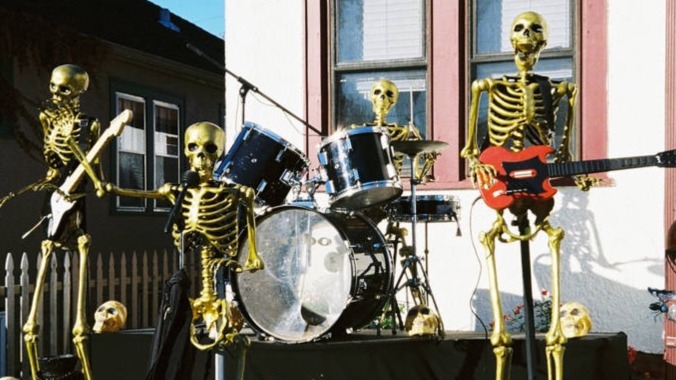oso oso Tell an Empowering Story of Growth and Radical Acceptance on life till bones
On the Long Beach quartet’s latest LP, the songwriting is intimate, fractured and grateful as the band continue their historic run of turning disappointment into catchy hooks.

When I interviewed oso oso frontman Jade Lilitri last December, life till bones was merely a skeleton like the ones on the album’s cover. He was prepared to enter the studio the following month with one main goal in mind: make a back-to-basics record. Some of the songs being brought into these sessions were older than the band’s 2019 record Basking in the Glow, but the plan was not to bring in something bare and build on it until fully dressed and accessorized, but to instead record pure embodiments of these songs absent of any bells and whistles.
The band’s spring tour co-headlining with Spanish Love Songs (a crowd that had me surrounded by a litany of self-proclaimed “elder emos”) saw the band test out lead single “all of my love,” and Lilitri continued his mastery of nonchalant vulnerability. The song gets to the point, and the song gets moving to what’s next while still leaving a lasting impression: “I can’t give you all of my love / All of my life” he admits about a relationship that’s run its course. It’s not sugar coated and Lilitri doesn’t defend himself, but if there’s something that he and his bandmates have historically done well, it’s turning disappointment into a catchy hook.
-

-

-

-

-

-

-

-

-

-

-

-

-

-

-

-

-

-

-

-

-

-

-

-

-

-

-

-

-

-

-

-

-

-

-

-

-

-

-

-








































